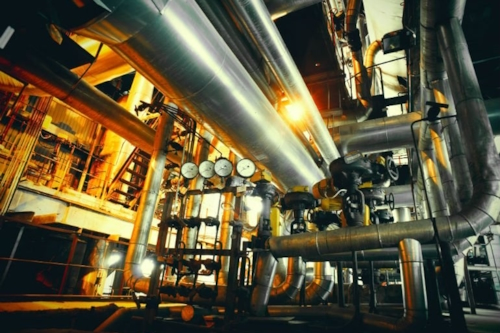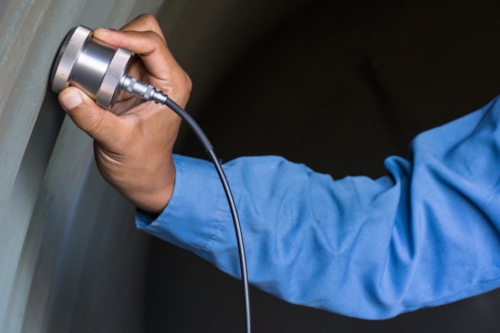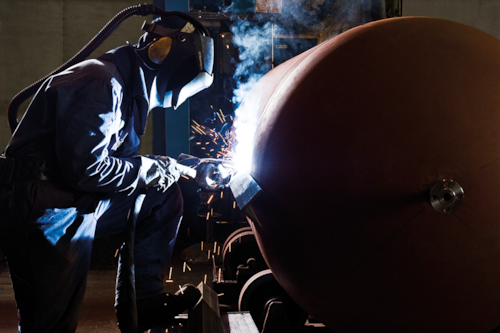
OEM and Equipment Compliance Solutions
Receive a quote tailored to your needs
Services part of this solution
OEMs must meet stringent global compliance requirements to ensure product safety, performance, and legal market entry. Our services include certification, quality assurance audits, testing, and regulatory compliance support to help manufacturers develop and certify high-quality, regulation-compliant equipment.
Certification
ATEX certification and compliance
Vinçotte (member of Kiwa Group) offers essential compliance support for suppliers and assemblers of materials in explosive atmospheres under ATEX Directive 2014/34/EU. With impartial assessments and expert guidance, ensure adherence to regulations with ease.

Inspection
Assessment of pressure equipment according to PED 2014/68/EU
Kiwa offers an assessment of pressure equipment manufactured for the European market according to PED 2014/68/EU.

Certification
ISO 9001 Quality Management
ISO 9001 Quality Management Systems Certification with Kiwa: improve your performance, meet customers’ needs and increase your profit.

Certification, Inspection, Testing
Non-Destructive Testing (NDT)
Check if quality demands are being met with non-destructive testing. Or use NDT testing as part of in-service inspections or preventive maintenance to quantify the status of critical components and equipment.

Certification
EN ISO 3834 Welding Manufacturing Certification
Welding is a special manufacturing process which is used in sectors to reveal structures which cannot be manufactured as one piece. The EN ISO 3834 series standards are also standards that define all Quality requirements for the operation of this particular process.

Certification
EN 1090-1 certificate: your starting point for CE marking steel and aluminum constructions
EN 1090-1 certification with Kiwa: demonstrate your compliance with EU regulations, highlight the quality of your components and get ready to access the European market with CE marking.

Why choose our OEM and Equipment compliance services?
Our compliance solutions ensure that OEMs and equipment manufacturers meet global safety, quality, and certification requirements. By obtaining the necessary approvals, businesses can enhance reliability, reduce risks, and achieve seamless market entry, positioning themselves as trusted suppliers in their industries.
Achieve global compliance for equipment manufacturing
Enhance product safety and performance
Streamline certification and market approval
Ensure welding and pressure equipment compliance
Boost customer confidence and competitiveness
Key standards and regulations for OEM and equipment compliance
Meeting international standards is crucial for OEMs to ensure product safety, durability, and compliance with industry regulations. Our certification and testing services help manufacturers align with key safety and quality standards, reducing risks and improving product acceptance in international markets.
ATEX 153 and 114
CE Marking
ISO 9001
EN 1090
Pressure Equipment Directive (PED 2014/68/EU)
ISO 3834
ASME BPVC (Boiler and Pressure Vessel Code)
OEM Compliance and Certification Process
Achieving compliance requires a structured approach, including design verification, material testing, and certification. Our process ensures full regulatory adherence, minimizing delays and supporting manufacturers in bringing safe, high-quality products to market with confidence.
Regulatory Assessment & Compliance Planning
Design & Material Evaluation
Testing & Certification Process
Final Approval & Market Entry
Ensuring global market access for OEMs and Equipment
OEMs must meet stringent regulatory and quality standards to ensure product reliability and legal access to market. Certification and compliance not only enhance product safety but also foster trust with customers and regulatory bodies, supporting long-term business growth.
OEMs and equipment manufacturers operate in highly regulated industries where compliance is not optional but essential for legal market access and customer trust. From machinery and industrial equipment to structural components, manufacturers must meet various safety, quality, and environmental regulations to ensure acceptance in global markets.
One key element of compliance is obtaining certifications such as CE Marking and ISO 9001. These certifications confirm that products meet EU regulatory requirements and international quality management standards, making them eligible for trade within Europe and other regions recognizing these standards.
For manufacturers working with pressure equipment, welding, and structural materials, compliance with PED 2014/68/EU, EN 1090, and ISO 3834 is essential. These regulations ensure that welded structures and pressure vessels meet stringent safety and durability criteria, reducing the risk of product failures or legal issues.
Additionally, adherence with ASME BPVC is often required for equipment used in international energy and industrial applications. Failure to meet these standards can result in market restrictions, product recalls, or operational liabilities for OEMs.
By collaborating with a compliance expert, manufacturers can navigate certification processes efficiently, reducing time-to-market while ensuring full regulatory alignment. Our OEM compliance solutions provide end-to-end support, from initial assessments and material testing to certification approvals and post-market surveillance.
Ensure OEM Compliance with Expert Certification
Get your equipment certified for global market entry with our expert compliance services. From CE Marking to ISO certifcation and material approval, we provide complete solutions for OEMs. Contact us today for a consultation and receive a tailored quote for your compliance needs.
Frequently Asked Questions
Find answers to common questions about OEM certification, compliance, and regulatory requirements for equipment manufacturers.
What is CE Marking, and why is it important for OEMs?
CE Marking indicates that a product complies with European directives on safety, health, and environmental protection. It allows products to be legally sold and distributed within the European Economic Area. For OEMs, obtaining the CE Mark is crucial for ensuring access to European markets, demonstrating product safety and performance, and meeting regulatory requirements.
Which industries require PED certification?
PED applies to manufacturers of pressure equipment, including pressure vessels, boilers, pipelines, and other pressurized equipment used in industrial and energy sectors. Compliance with PED involves different levels of approval depending on the equipment’s type, volume, and pressure, and can include product inspections, certifications (such as CoC), or in some cases, a declaration from the OEM. The specific requirements depend on the risks associated with the product, and not all products require full certification. For certain lower-risk products, a declaration of conformity (DoC) may suffice.
What is ISO 9001, and how does it benefit OEMs?
ISO 9001 is an international standard that sets out the criteria for a quality management system (QMS). It helps manufacturers establish a structured approach to improving processes, product consistency, and overall efficiency. For OEMs, achieving ISO 9001 certification demonstrates a commitment to meeting customer requirements, enhancing product quality, and fostering continuous improvement. This can lead to increased customer trust, reduced operational costs, and a competitive edge in the marketplace.
How long does the certification process take?
The timeline depends on product complexity and testing requirements, but our streamlined approach minimizes delays, ensuring faster market entry.
Can you help with welding certification for OEMs?
Yes, we assist OEMs with EN 1090 certification, ensuring that welded structural components meet safety and performance standards. Additionally, we support compliance with ISO 3834, which focuses on the quality management of welding processes, ensuring they meet international standards for consistency and reliability.